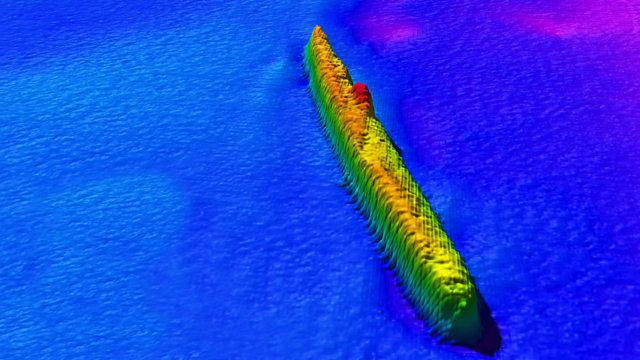
Shipwrecks and microscopic bodysnatchers
What can shipwrecks can teach us about the sea bed? Plus we find out about the 'triffid'-like plankton that is fascinating scientists.
Last on
More about the programme

We delve into the deep for this week's science discoveries and talk to research teams studying shipwrecks and triffid-like plankton. While the subjects are not quite as menacing as they might sound, they're certainly fascinating.
Prof Kevin Flynn and Dr Aditee Mitra have been examining the behaviour of plankton for decades. We might think of it as mere fish food. In fact, it's a driver for life in the ocean and has shaped our environment above sea level too. Kevin聽explains to Adam how certain plankton, called coccolithophorids,聽are responsible for the limestone cliffs of Dover. In the same way these tiny organisms are bioengineering their immediate environment in order to enhance their growth.聽Aditee聽talks about her research on mixotrophic plankton, which聽has the alarming ability to invade and聽alter聽other聽microbes.
At Bangor University's School of Ocean Sciences, meanwhile, Dr Michael Roberts is mapping the聽hundreds of shipwrecks that litter the聽Welsh coastline. As project manager with Seacams, his aim is to learn more about how these man-made structures affect tidal flow and movement on the sea bed. Useful information for the renewable energy industries. His colleague, Dr Tim聽Whitton, explains how he聽monitors the impact of shipwreck on marine life, using some very clever sonar technology.聽聽聽聽聽聽聽聽聽聽聽
Broadcasts
- Tue 5 Sep 2017 18:3091热爆 Radio Wales
- Sun 10 Sep 2017 06:3191热爆 Radio Wales

